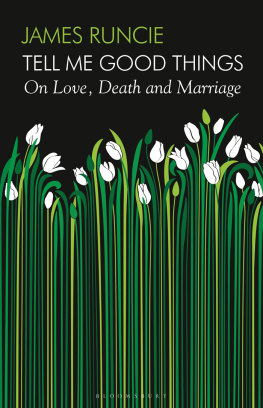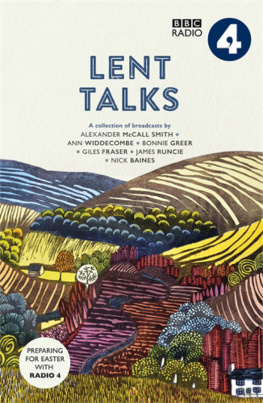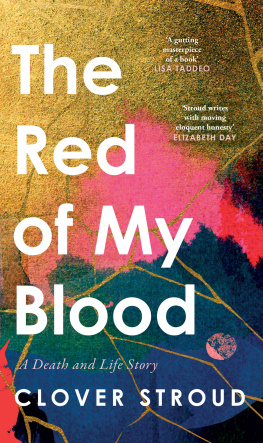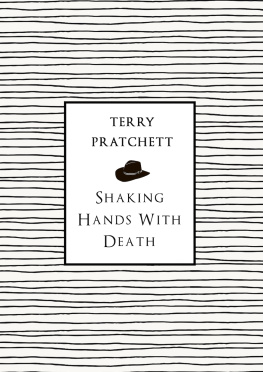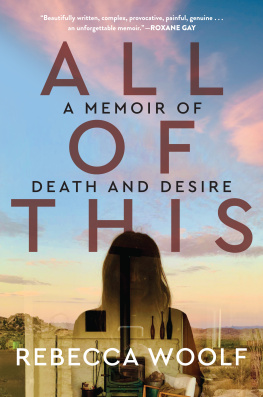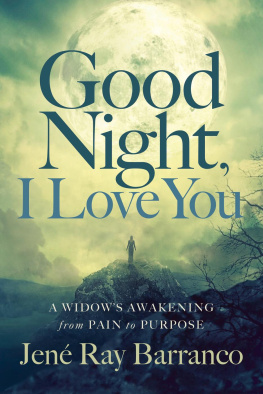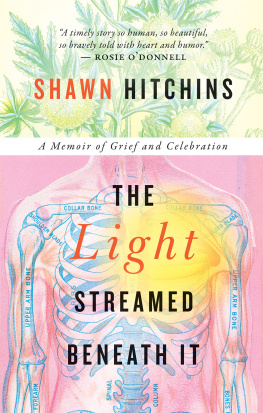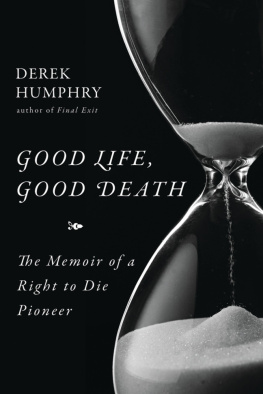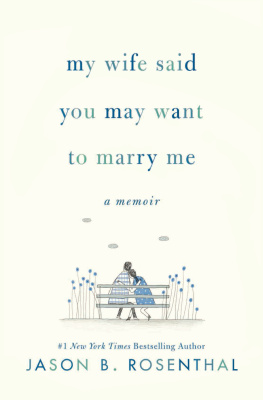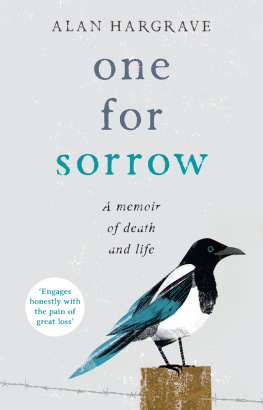
Tell Me Good Things

BLOOMSBURY PUBLISHING
Bloomsbury Publishing Plc
50 Bedford Square, London, WC1B 3DP, UK
29 Earlsfort Terrace, Dublin 2, Ireland
BLOOMSBURY, BLOOMSBURY PUBLISHING and the Diana logo are trademarks of Bloomsbury Publishing Plc
First published in Great Britain 2022
Copyright James Runcie, 2022
James Runcie has asserted his right under the Copyright, Designs and Patents Act, 1988, to be identified as Author of this work
Every effort has been made to trace copyright holders and to obtain their permission for the use of copyright material. The publisher would be glad, if notified, to rectify any errors or omissions in future editions of this book
Motor Neuron Disease by Kevin Talbot and Rachel Marsden copyright 2008 Oxford Publishing Limited. Reproduced with permission of the Licensor through PLSclear
All rights reserved. No part of this publication may be reproduced or transmitted in any form or by any means, electronic or mechanical, including photocopying, recording, or any information storage or retrieval system, without prior permission in writing from the publishers
A catalogue record for this book is available from the British Library
ISBN: HB: 978-1-5266-5544-8; EBOOK: 978-1-5266-5543-1;
EPDF: 978-1-5266-5542-4
Typeset by Newgen KnowledgeWorks Pvt. Ltd., Chennai, India
To find out more about our authors and books visit www.bloomsbury.com and sign up for our newsletters
For Rosie and Charlotte
Contents
Everyone in the world has to face the loss of someone they love. There are countless tributes, biographies and laments written by the recently bereaved. In the best of them, the writing reaches out beyond therapy and recollection to share what Dr Johnson called moral instruction in the art of bearing calamities. They help those facing a similar devastation.
My wife, Marilyn Imrie, died of motor neurone disease at five oclock in the morning on 21 August 2020. She was a drama director, a singer and an artist: mother to two girls, wife, sister, aunt and grandmother. She was seventy-two years old.
We had thirty-five years together. This is our story, and this book is a love letter to her. But, as well as an account of trauma, its the memoir of a woman who was an effervescent force for good in the world, a person who thought the best of people, embraced adventure and delighted in greeting her friends: Hello, Gorgeousness! Tell me good things!
This is not only my way of reclaiming her from the last months of a terminal illness but an attempt to provide my own version of Johnsons moral instruction and to offer both the consolation of sorrow and the possibility of hope in the face of despair.
So here you have it. Bereavement: a comedy.
In November 2014, we were staying at Gladstones Library in Flintshire, some eight miles west of Chester. I had given a talk the previous evening, and Marilyn and I had booked in for a few days to read, think and write in Britains finest residential library, founded by the Victorian scholar, polymath and prime minister, William Ewart Gladstone. The plan was for a restorative retreat but, on our first morning, Marilyn woke up with a sharp pain down her left arm.
I was making tea. I came back to the bed and touched her wrist, very gently, to ask where it hurt, and she called out in anguish. She gave such a sharp cry that I couldnt quite believe the sound was coming from her. What was this severe and frightening discomfort that had come on overnight?
Marilyn wondered if it was the result of a recent flu jab, even though she had never had such a reaction before. The pain went up to her shoulder and down her left leg. She didnt feel at all well.
We had booked in for the week but decided, during breakfast, that staying on was going to be no good. It would be better to get back home to Edinburgh. Marilyn saw a doctor as soon as we returned and, although the soreness eased, she was thrown by the peculiarity of the inflammation and the inexplicable speed of its arrival.
Over the next few years there were what doctors explained away as the aches and pains of ageing: tiredness, moments of numbness, a weakening in the wrists and arms. Marilyn found it hard to twist the tops off jam jars, and we developed a routine where she stopped bothering and handed them straight to me. She complained that the saucepans had become unwieldy, and I was told off for buying a griddle because it was too heavy. How do you expect me to lift that? she asked.
Soon, there were other health issues: oedema in the right ankle, a watery eye, and a pain in her upper leg which reminded us of the joke I had made at my sisters wedding: Our mother has just had a hip replacement operation. We did wonder whether it might have been simpler to keep the hip and replace the rest of her.
These were still days in which illness came and went and we always got better; when we could laugh as if nothing could ever go wrong, or, if it did, we would find a solution and get on with our lives. Marilyn continued to work as she had always done, producing and directing Rumpole and The Ferryhill Philosophers for Radio 4, the voice-overs for an animation series, a stage musical about Dusty Springfield, and an adaptation of Alice Munros The View from Castle Rock at the Edinburgh Book Festival. We worked on three of my plays together, two about Dr Johnson and one about an imaginary meeting in Paris between Fred Astaire, Audrey Hepburn and Jean-Paul Sartre. We described it as the worlds first and probably last musical about existentialism: Tap Dancing with Jean-Paul Sartre .
Marilyn had always had amazing energy but started to tire. Its not surprising, I said, you never stop. The children asked if she had thought about taking it more easily, but no one dared suggest the word retirement and in 2017 we celebrated her seventieth birthday in Venice. We bought a house, right by the sea, in the fishing village of St Monans in the East Neuk of Fife, not far from where Marilyn was born. Our daughter, Charlotte, was working as a journalist and writer of non-fiction, and she had just given birth to a baby girl. My stepdaughter Rosie worked in the theatre as a dramaturg. At the time, we did not realise that things could not possibly be this good. We were too busy.
Then came the fall. A slip on a wet stone during the interval of a concert in August 2019. (My foot just gave way.) Then another on her birthday in November. (I must have tripped on the leg of a sofa.) Then she fell in the garden but didnt tell me about it until there was another in the living room as she turned away from the window. The doctors asked if she had been drinking. She laughed and looked at me. No, I explained. Im the one who drinks. Marilyn hardly touches the stuff.
They told us it was probably sciatica. She had physiotherapy but her legs and hips did not seem able to respond as they should have done.
A few weeks later, teaching a course in radio drama at LAMDA, she found that she could not get her mouth to say the word vintage. Alarmingly, she complained that there was something wrong with the accelerator on the car. It wont go down. She lost more strength in her legs. Every time there was a new symptom, she went to the GP. He referred her to what he called a one-stop shop, which turned out to be a polyclinic for geriatric patients. They thought she was just getting old. There were no further appointments available for three months.
At Christmas, Marilyn could not lift the turkey in and out of the oven and asked Rosie to accompany her to the shops because she didnt want to go out alone. She was frightened of another fall.
Next page
